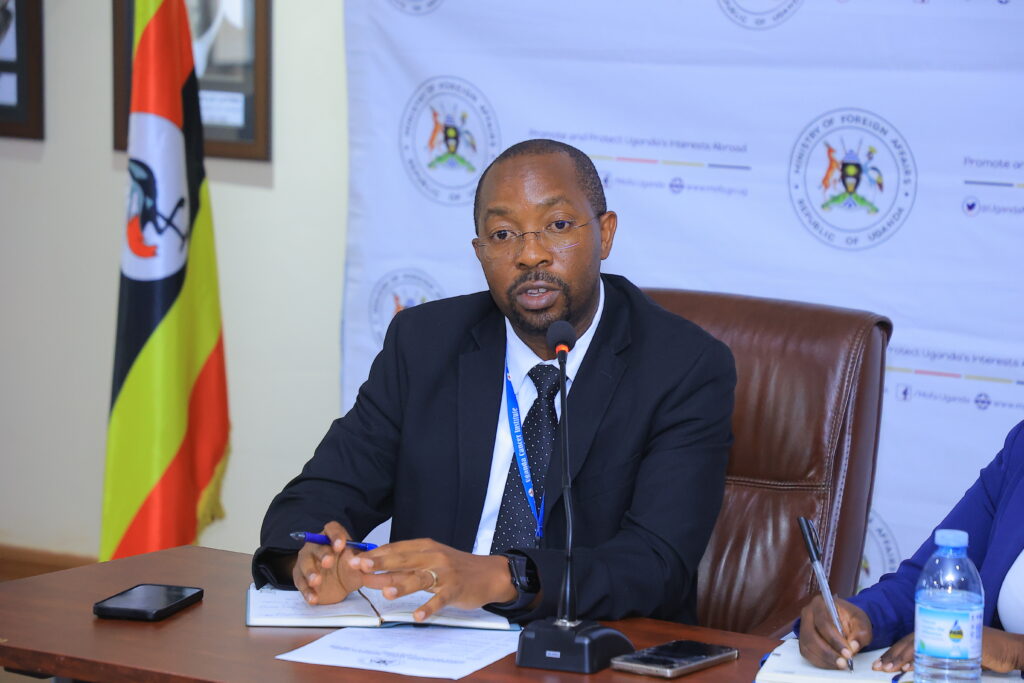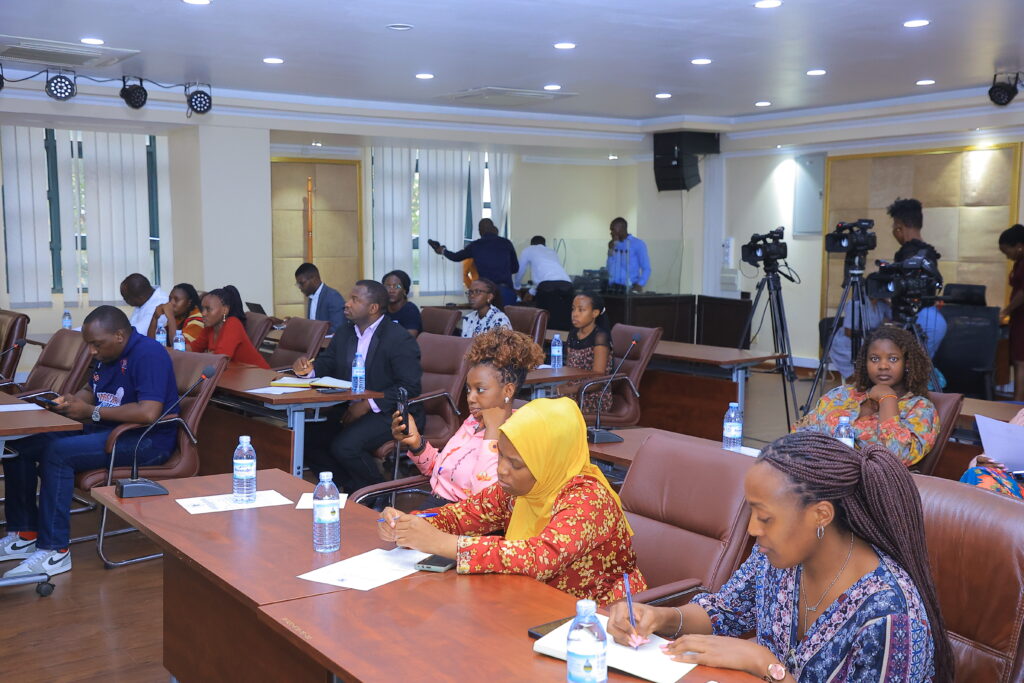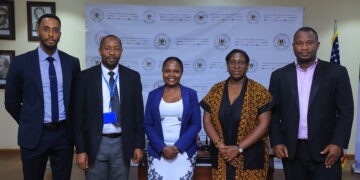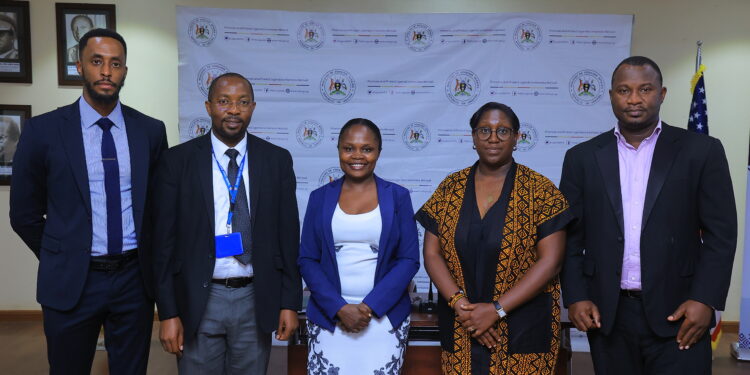The Government of Uganda has reiterated its strong support for the African Oesophageal Cancer Consortium (AfrECC) Foundation, recognising its pioneering efforts to address the rising burden of oesophageal cancer across the continent.
At a press briefing jointly organised by the Uganda Embassy in Washington, D.C., the Uganda Cancer Institute (UCI), and the Ministry of Foreign Affairs (MoFA), senior officials and health experts applauded AfrECC’s evidence-based, partnership-driven approach as a model for tackling non-communicable diseases (NCDs) through both regional and international collaboration.
Oesophageal squamous cell carcinoma (ESCC)—the most prevalent type of oesophageal cancer in Africa—disproportionately affects populations in East and Southern Africa. In 2022 alone, the disease claimed over 28,000 lives across the continent, with many cases detected too late for effective intervention due to limited access to diagnostic services. Uganda, one of Africa’s eight founding member states, continues to champion collaborative, African-led health solutions.
Dr. Nixon Niyonzima of the Uganda Cancer Institute highlighted late-stage diagnosis as a major obstacle to treatment in Uganda. “AfrECC’s support has been transformative—from providing self-expanding stents to enhancing our capacity for endoscopic procedures,” he noted. “Their commitment to context-specific research and African-led interventions aligns seamlessly with our national health priorities.”

He revealed that 82% of oesophageal cancer patients in Uganda are diagnosed at advanced stages, largely due to limited screening and low public awareness. “Risk factors such as tobacco use, alcohol consumption, and a lack of diagnostic infrastructure, like endoscopy, further worsen the situation,” he added.
He underscored the importance of AfrECC’s continued support, including an upcoming initiative on June 11, as critical to bridging these gaps and improving patient outcomes.
Formally registered in 2024 as a U.S.-based nonprofit, the AfrECC Foundation has already donated over 1,500 self-expanding stents across the region, trained numerous clinicians in endoscopic techniques, and established a continent-wide research network to explore environmental, dietary, and microbial causes of ESCC.
Among its key international collaborators is Dr. Jerome D. Waye, a veteran in gastrointestinal endoscopy and Professor of Medicine at the Icahn School of Medicine at Mount Sinai, whose expertise has been central to AfrECC’s clinical missions.
Uganda’s diplomatic mission in Washington, D.C., emphasised its role in promoting health diplomacy to enhance U.S.-Uganda cooperation. “Our partnership with AfrECC demonstrates how foreign policy can be leveraged for improved public health,” said Mr Benon Kayemba, a representative of the Embassy. “By harnessing global expertise and mobilising resources, we are reinforcing Uganda’s dedication to strengthening local health systems through international cooperation.”
Vivian Kobusingye, a member of AfrECC’s leadership, shared a personal reflection on the campaign to raise awareness about this often-overlooked disease.
She praised the unwavering support of Ambassador Robie Kakonge and the Ugandan Embassy in the U.S. “We are rewriting the story of oesophageal cancer through science, innovation, and community engagement,” she said. “When used responsibly, technology—including artificial intelligence, image analysis, and targeted health messaging—can be a powerful tool in promoting life-saving behavioural change.”

Kobusingye also urged media professionals to be active participants in public health advocacy. “Journalists play a crucial role in telling compelling, accurate stories that educate the public and drive action,” she said. “Changing public perception, fighting stigma, and ultimately saving lives requires a united effort.”
Speaking to the press, Ms Margaret Kafeero, Head of Public Diplomacy at the Ministry of Foreign Affairs, reaffirmed Uganda’s dedication to global health diplomacy and African-led health initiatives.
“We commend the AfrECC Foundation for placing Africa’s cancer crisis on the global agenda,” she said. “Our diplomatic efforts—especially through our Washington, D.C. Embassy—aim to harness opportunities for science and technology transfer that support inclusive and sustainable health outcomes.”
As part of the growing partnership, Uganda will host a live stenting training workshop on June 11 at the Kyabirwa Surgical Centre in Jinja. Patients will receive free treatment while local clinicians benefit from hands-on training. This will be followed by a high-level Oesophageal Cancer Symposium on June 13 at Four Points by Sheraton in Kampala, which will bring together stakeholders from health, research, and policy to chart strategic responses focused on early detection, treatment, and prevention.
The Ministry of Foreign Affairs reaffirmed Uganda’s unwavering commitment to addressing NCDs on the global stage, emphasising that the AfrECC partnership exemplifies what is possible when diplomacy, science, and community leadership converge.









